WWNO.org Reporting on the Claiborne Overpass
Photo By Owen F. Murphy, Jr., The Historic New Orleans Collection, Gift Of Arts Council Of New Orleans [1996.93.47]
Blake: In a report published in 2021 after the passing of an infrastructure bill in Washington DC, one of the projects mentioned was addressing the Claiborne Overpass. There were not any details as to what might be done with the overpass but it brings up an interesting topic. What if the overpass were to be dismantled and turned back into what it was before it was built? What if it were to be turned into something akin to the Highland in New York? Or what of the infrastructure funds were to go to upkeep of the overpass and some sort of support for the Treme community and surrounding Businesses where were so adversely affected by the creation of the overpass straight through the heart of the neighborhood?
And I was just wondering if you had any thoughts on it.
Jessica: Oh, I have a lot of thoughts. I funny thing, I grew up in 7th Ward on, right off of Paris Avenue. So I would often see the Claiborne Arbor Fest almost every day of my childhood life. But also today, I, my office is right on Claiborne Avenue. So I, my office is two houses over from Manchu Chicken, and so I literally go to work. I take the Claiborne Overpass to get to work, and I parked right underneath it. And literally, I look at it every day. So I have no choice but to think about what this means for the community and the neighborhood and its vibrancy. I also lived in New York City, and I went to the new school, which is a stone's throw away from the Highline.
So I have quite a few thoughts. The 1st thing I will say is that I think, we talked about engineering, right? I do not think the solution for repairing the relationship and repairing the trauma in Treme is going to be tearing down that highway. I think that would be more detrimental to the community.
If you notice anything about New Orleans and construction, you don't have a great relationship with it. It takes thousands of hours to get even like a corner of a sidewalk finished. They recently worked on my neighborhood and like our sidewalk. And I was like, okay, great. They can do a sidewalk. Took eight months to do like a sidewalk. And so I cannot imagine that they could tear down I-10 and then be like, "Yeah, we're going to do it in two years." I would not put my money on that. It would take a decade. And then you have just destroyed a community twice over. Basically you destroyed this community's productivity.
The whole point of talking about the Claiborne overpass is talking about, it's really about reparations, right? It's really about repairing what has purposely been broken for the benefit of white supremacy or capitalism, whatever.
It's really the benefit of all of that, but the people who were at the brunt of it are black people in New Orleans and who have been at the brunt of pretty much all investment and policy decisions in Louisiana. And so when you're talking about reparations, I'm not like an expert, but I took quite a few courses on reparations in my master's program and we studied reparations around the world.
And what I will say is that reparations isn't about, isn't always, because there are different ways to look at it, it is not always about. Cash because the people always say, Oh, reparations means every black person going to get 100,000. That's not necessarily true. Reparations isn't always about tearing down either, right?
Reparations is about truth. It's about reconciliation and it is about repairing what has been broken. And recognizing. And the ways in which it can happen. And so if we're going to talk about the Claiborne overpass, the first thing that needs to be thought of is. The truth and reconciliation part.
Why did it happen? Who did it happen to? And I think we, me in the circle, because I work there, I hear about all the time, but there are a lot of people who still don't know what that is about. And so I think because the I-10 and the Claiborne Overpass connects all of these communities and people pass on this road every single day and have no clue what this was, what this meant to Treme, that should be the first step before anybody touches anything with the interstate is really telling the truth about this community. And the same way they did with the slaves after Reconstruction, and they interviewed slaves and got their truth, it should be the same thing in getting community's truth. There are people still alive today who saw what it was like before they built that overpass.
So that should be the first step.
The second step, I don't know how it should be reclaimed. Should it be torn down? My initial instinct, and I'm saying initial because I don't have the data or research or I don't know what the options are just hearing it. I mentioned, I'm not for it because I think it's going to be equally detrimental to the community. My building is facing Claiborne Overpass. I'm not gonna be able to get to work. That building is a historic building. So when they start tearing that down, that basically could destroy the foundation. It will destroy the economics of that community that's already hanging on by a thread.
I love my job. I love where I work because I go outside and I see black people in internal black joy. They're black people outside hustling. They're selling hair, they're selling CDs, they're joking, they're laughing. They're going to Manchu's fried chicken, they're going to Cajuns, they're going a Lil Dizzies. It's just hustle and bustle and I can see that. And then if they did that, all of that would stop. And then all of those businesses would be hurt for a long period. And that could be their detriment. And my office is a shared office space of all black owned businesses. Where are we going to go? It would displace businesses.
So to your point about the Highline, I think is a good way to look at it. I'm not a fan of The High Line. I used to love it. First of all, it's beautiful, it's stunning. But The High Line is what we don't need in Tremé because it led to gentrification. You talk to New Yorkers who lived in Chelsea and who lived in the Meatpacking District, they're like, yeah it was super cheap. And New York was always going to be inexpensive because of the way it moved under Giuliani and all that. There's a whole history behind that, but it is astronomical. It is like literally the most expensive neighborhood in New York City now, in Manhattan. And it's because of The High Line. And also, I went to The High Line when I lived in New York in 2009 for a short period to go to NYU, and it was in very early stages. If you go there now, it's a shopping mall, there's like a Louis Vuitton store. I'm like, this is so disgusting. It is America on steroids now.
And it's unaffordable to live there. Even if you wanted to. So envisioning a High Line for Tremé as an option, it is already gentrified as hell. I always wanted to live in Tremé, and I can no longer live in Tremé. My mentor has a historic home, and I was like, I would love to buy your house, and she was like, yeah, you got a million dollars?
No, I don't have a million dollars. Of course, I don't have a million dollars. I can no longer afford to live in a neighborhood I've always wanted to live in, that I grew up nearby. And so if they built the High Line, it would basically be a playground for the rich. It would basically expand Bywater over to Tremé , and then it would be new Bywater, same thing that they do in New York; new Chelsea, new Williamsburg.
That's basically what it would become, and it would lose its historical relevance. Also as I mentioned, the Claiborne Overpass is where the Mardi Gras Indians gather. It's for Mardi Gras. I always go under the Claiborne Overpass because I go there to celebrate Zulu and it's hustling and bustling and people selling goods and food and people are laughing and it's just, it's amazing.
And I bring my friends from all over the country there and they are just amazed at how wonderful it is. If they did that, all of that would die. And there is no long term vision for how to make sure that doesn't die. And again, if we reengineer it into something else, it is no guarantee that is going to be for the benefit of the black community, which is the whole reason why we're having this conversation.
Invest In The Treme Community As Reparations For The Overpass
So my long term vision, if I could fix it; I don't really think the Claiborne overpass is the solution nor the enemy because all of America's policies is the enemy. All of Louisiana's policies is the enemy in regards to black liberation and black joy and black health and black poverty.
It's all of it is. So tearing down an interstate is not going to fix mass incarceration of black people in Louisiana. It's not going to fix that we have the worst education system in America. It's not going to fix that most black people live below or at the poverty line here in Southeast, Louisiana.
It's not going to fix any of that. I want to see my community grow and expand. And in order to do that, I would anticipate that we do real true reparations, take the same money that would have gone to tearing down that overpass and investing it into communities. And I think you can make the under the overpass more beautiful. It is pretty ugly. You can change it. You can beyond painting it, it could be, I think the urban water plan envision it could be a waterway in some areas that it could have a garden underneath. But I am a little hesitant because I don't want it to become a High Line and I don't want to become further gentrified and it already is.
I want that money invested into black businesses, I want that money invested into black homes. There are so many homes in Tremé that are falling apart because black people can't afford the property taxes there and they cannot afford to fix it, invest it into their homes so they can keep their homes.
Invest it into the businesses. Invest it into the education system. Invest it into those young people who are being arrested every day because they're doing petty crimes because they don't have opportunity or they don't see opportunity. And so I've been working in social justice my whole life in New Orleans, and I've seen when well meaning people come in and they're like, "We're going to fix it all by re engineering something, we to fix it," and that's not what we really need.
We need to fix systematic racism in New Orleans, and that's the only way to alleviate the Claiborne Overpass and how to fix that.
Blake: I am curious, let's say, if a High Line type plan were put forth and pushed to turn the overpass into not an overpass and have people just use Claiborne Avenue to make their means from point A to point B, getting out to Slidell, if not taking 610 or whatever it might be...Would there be a way to invest in the community around the overpass and to put in protections to keep the area from becoming gentrified and priced out? I personally don't know of efforts other than rent control and some things like that, that you do in some of these other cities, like New York, that are just absurd.
But maybe there are some policies that could be put into play to invest. If you're gonna invest in infrastructure, then invest not just in what the overpass is, but in renovating and improving housing, not to then sell it and have it become million dollar homes, but just to invest in properties that are already there, businesses that are already there improving, like you said, the bottom of the overpass itself.
I've seen a few projects in Portland and New York and where there are actual new structures built under overpasses and stuff where you can actually utilize that space for some new businesses or whatever it might be. Do you have any thoughts on is there a way to protect from gentrification or is that, does that just feel like it's an inevitability if you invest in opening and turning that top part of the interstate into a mix of walkways and greenery and museum kiosks or whatever it might become?
Jessica: I think it would be inevitable. I think New Orleans, I think Mayor Cantrell, I think it was in her first or second year tried to do a basically a bill that would reduce poverty tax for neighborhoods like Tremé that are at risk of gentrification. And the problem is, it had to be approved by the state, by the whole state. And of course, the whole state said no. Anytime Louisiana, and that is a problem of Huey P. Long and his policies that basically anytime New Orleans tries to save itself, we are prevented from doing so because of the politics of Louisiana.
I'm not saying it's impossible, but it proved to be very difficult the first time around. And I can imagine it'll be difficult to do the same thing the second time around or third. Also what I'm hearing in Tremé is that even if someone does have the income to protect their property and their household and they know how to, maybe they're making enough income, that there are developers and buyers hungry for these properties, and they're calling black people up or homeowners up and saying, Hey, how much is your property value worth? Oh, it's $450,000, when I bought it, it was maybe $100,000. Okay, I'll give you $800,000 for it. They will, as long as that property will become desirable, which if it looks like The High Line and acts like The High Line, it will become desirable, they will always be after that land.
Invest In The People, Not Just Things
When I lived in Brooklyn, it was the same thing. People who are like, I'm not moving. And then they see that check. And they're like, "You know what, I'm packing up next week. Good to see you." So I think it would always happen. And so that's why I don't think It's as important for me to invest in how it looks rather than invest in the people.
And we do a lot of investing into things. We do a lot of investing into buildings and properties, and we never invest in people. And then when people fall off the wayside, we're like, Whoa, what happened? We built this really pretty building, but people somehow, they're in poverty. How'd that happen?
Cause you didn't invest in them. And so I think that no matter how pretty the overpass could look or would look it will always hurt the people it's intended to hurt if we don't invest in them first. And so maybe a possibility if people are really interested in this idea is to invest maybe 50% of that money, or really 60% or 70% goes to people. And then maybe 30% goes to the look of the facility.
But Tremé, the beauty of Louisiana, and I'm using Tremé, it's like a smaller little thing and this larger circle is that I love being Louisiana because we have these crazy swamps and bayous. And then we have this engineered land behind it.
And it's something we have to fix. And it's something we need to address. But it is a beauty in that. And even when it's not working, and even if it's not being utilized, it is our history. It is qualities of living in this country, and so I think I'm just really hesitant about a High Line idea.
And I love The High Line and nothing against it, but I know what it did to the community. And I know that people were priced out of Chelsea, and I know people were priced out of neighborhoods surrounding Chelsea. And now Chelsea is like the playground for the rich and famous and millionaires and all of these crazy buildings and high end stores.
And New York is, of course, always like on steroids with that stuff, but I think New Orleans, being the city that it is, I've lived here my whole life and not really until the last 10 years have I ever seen this many transplants, this many people from anywhere else. And so it would be, it would become another like playground, basically for the wealthy And I don't wanna see the last remaining community of the historic black community, the little bit that's left of it be torn apart because of some fascination with a physical building when they're larger systems at play that fixing a building won't fix the system that's broken.
Blake: If you have any contacts in in New York to that I could talk to or living near The High Line or somewhat involved, it'd be great to talk to them about their sort of experience with it, echoing a lot of what you're saying with your own personal experience. And second, if there were funds that could invest in the underpass of the overpass in putting in landscape architects like you said, some ideas around waterways and such, if there were funds to improve the bottom of the overpass, would you be open to that for the community or do you feel like that even that would potentially lead to the inevitability of gentrification of the area.
Jessica: I'm open to all of it. I think it's just the how we do it. And I think I want to be clear is that when I talked about reparations and that, remember, we need to start with truth and reconciliation first. Secondly, we need to invest in the people, then we need to invest in the land or the built infrastructure.
So I think people are so caught up in what is it going to look like when there's people who are homeless living under the same overpass. What about them? So I think that we need to refocus our attention away from the what it's going to look like until the people have some type of safety net before that process even begins.
And that's kind of Louisiana's problem, I think, and especially Southeast Louisiana, as we have been historically, that's what we've done. And that's again, that goes back to that like mentality of what have we been doing? We've always engineered land without consulting the people. And we're like, "This is so good for you. We put up this big levee across the Mississippi River and I flooded your land, but it's good for you because now, this land will never flood again, even though your land s flooded." It's this really crazy relationship we have with the environment where we keep thinking that will fix our problems and it has never fixed our problems.
If anything, it's made our problems worse. The MR-GO, same thing. They never consulted anybody about it. They just did it. And now it floods the ninth ward every time. Before they closed it, twice it flooded the ninth ward. Why do we keep thinking that building more things is going to fix the world or fix poverty or fix systematic racism.
It's not going to fix anything. I think the same thing goes when people, I think I heard Lindsey Graham said, "We don't have racism in America, Obama was president." I'm like, so electing a black president isn't and having a tokenization of black people or Beyonce or, and I love all of them, but that does not mean that racism has been fixed because we put one black person on a pedestal.
Similarly, it does not fix racism, if we fix one interstate. And I think we have to stop rethinking about engineering again of people and thinking specifically about the people who it's supposed to be impacting. I'm not against it, though. I think I just want to be really careful about the process in which we do it.
And every time I hear about the overpass, no one talks about the people. They're always talking about what it's gonna look like. Should we tear it down? Should we keep it? Should it look like The High Line? Should it have business underneath? Should it have waterways?
No one is talking about the people though. And what they need in order to succeed with or without an engineered overpass or whatever it's going to look like. There's two stories for this is that you can make the overpass look amazing, gorgeous, just like The High Line, and you're either going to have poor people around it because they haven't been invested in it, or you're going to have rich people around it because the poor people were kicked out.
Either one of those are not an answer to that.
Blake: It's that whole process of what I personally think was a magic trick of diversion of being like, "We're going to put this along the river right through the French quarter." Oh no. You can't do that. Create an uproar about that and then go, "Okay, cool. Then let's just put it through the black neighborhood." I literally think that's what happened. I think that was some sort of Edward Moses magic trick PR thing that was done in order to scare all the people with money, and the sort of tourism folks. And then basically be like, okay, then we're just going to put it over here. And have them be like, okay we'll take B. Since the people who it's going to directly affect don't have power.
Jessica: New Orleans has always been driven by tourism. But what do the tourist think?
And also the port, right? I've talked to people at the port and they don't want anything on that river, like nothing. What if we put this here, like an overlook and they're like no, we can't have an overlook, the ships. I'm like, there's enough space for everybody to fit. This is a big river and they're like no, but the ship.
We've always had this crazy relationship with the river where we can't touch it, even though it's engineered to look the way it is, but can't put anything on it. Yeah I think that there are so many better ways to have gone about it, but the reality is that it was a red line community. And so when you have a red line community, no one really cares about the social impact or environmental impact of a red line community. Today, we don't red line in the same way we think we do. Or used to. And so we're like, Oh, how could they do that? But I don't know if he ever seen this new show called 'Them', I don't know if that even rings a bell to you, Blake, but it's like a horror, black horror show. It's really heavy, but it's about redlining in Compton, California before it became black. And so we think this way, cause we have empathy and we are more educated, but at that time they're like, yeah, of course, black people don't matter. Let's just put it through there. Nobody cares. And there's still people who think that way today. When I hear the story, I'm like, tell me something new, right?
Blake: It makes me think that when you're talking about infrastructure bills and trillions of dollars of capital and looking for projects there becomes an everything's a nail to the hammer mindset where they're like, we have the money. Let's tear something down. Let's tear down the overpass. So my worry is that could happen. Obviously it's been brought up and mentioned by the Biden administration. It's got a little bit of press recently about this idea of using some infrastructure capital to potentially tear down the Claiborne overpass, fix a wrong of the past.
It makes me think that maybe some of this infrastructure capital should be spent not on actual infrastructure, but on the errors of the past of previous infrastructure projects. If you're going to spend 200 million to do a project in New Orleans why don't you, like you said, take a quarter of that and put it into infrastructure improvements that are sustainable like waterway improvements and how we deal with water and maybe the rest goes to improving and supporting a community that was had such an impact by previous infrastructure projects that devastated communities decades ago.
So that might be a narrative that needs to be pushed now before you start having big decisions made not by the folks who live in the area. (Write this to be shorter and about the narrative to be pushed)
Jessica: And furthermore, too, there's the Claiborne Corridor group and they can't agree on what to do with this. So I can't even if Biden's like yeah, tear it down, the community itself cannot agree on what to do.
So I think that despite all these people pushing things, I've heard many stories about how the people of Claiborne Overpass have been fighting and bickering, and there's one group that wants to do this, and another group wants to do that, and then some groups don't want to do anything and I think all of this bickering is really just because people haven't been invested in it, and people of Tremé, this thing has been set in their lap, and they're like, all right, fix it. I t's hard to fix something when everything else around you is broken, right?
It's like I recently heard about, I listened to this podcast called Throughline, which I really love. I don't know if you've ever heard of it. It's NPR and they talk about like the history of Earth Day. And what stuck out to me is they went to the NAACP and civil rights leaders in the sixties, Black Black Panther Party and they're like, hey, you want to get on this Earth Day movement? And they were like, no. And they had asked the guy who was a white guy and some indigenous Chicano people who are leading this movement, "Why don't black people want to be involved in the environmental justice movement?" And he's like dude, we're over here trying to make sure we're not being lynched. We're trying to fix Jim Crow. We're trying to like deal with the police. We're trying to deal with federal COINTELPRO and like this whole thing.
So they were like, we have all of this to deal with and we can't just, we can't sit around and talk about environment. Now, obviously that's changed. But I think that's the same thing, if were asking people of Tremé to be like, all right, fix this giant engineered thing that was put in your community among all the other things that are not working.
Blake: Yeah, it's an opportunity cost scenario right there. Where are you going to put your energy and efforts? It's let us deal with this. That impacts us like every second of every day. And then maybe we'll get around to helping you guys out with your recycling PR campaign.
Black People As An Afterthought
Jessica: You're recycling PR campaign. And so it feels very much the same to me. Obviously it's a different context, but I live in the seventh ward and my family still owns my family home there. And it's all different. It looks different. And I feel it so poignantly, like I grew up here and after this post Katrina New Orleans, I'm more sensitive to it because I seen my entire city be transformed without the benefit of people of color or poor people, for that matter.
And every single decision for rebuilding New Orleans has been in benefit of capital corporations or tourists. And we are like the de facto, "Oh if these people benefit, then yeah, sure. Black people will benefit," or "If these people will benefit, sure, poor people will benefit." Yeah, maybe. We have never been at the forefront of the decisions on how New Orleans was rebuilt.
I remember when they tore down the, and that's another perfect example of this is that when they tore down the projects and I was there protesting against tearing it down and our argument was, same thing, invest in the people, you can redesign how these buildings are built, but you need the housing and everybody on city council, Jason Williams was there, voted, I think, to, except for one person, I believe voted to tear down all the projects.
And look where we are now. We have no affordable housing in New Orleans. We have a 33,000 shortage of affordable housing. And the argument back then was if we tear down the projects, then maybe the crime will go down because poor people can't gather and there'll be less gangs. Here we are in 2023 and crime is equally as high. So what did that do for us?
And now we're out of housing stock. So this idea that we engineer them something to fix social errors or problems or historical trauma is a myth and it is a myth that is perpetuated by this idea that by really the rich and those with power, who really just want to use their narrative to make money.
That's always been, like I said, with the port its like, "Yeah, you can't put interstate here because it's going to mess up with my boat, where my ship is going to go. Where is the carnival cruise going to look if there's an interstate?"

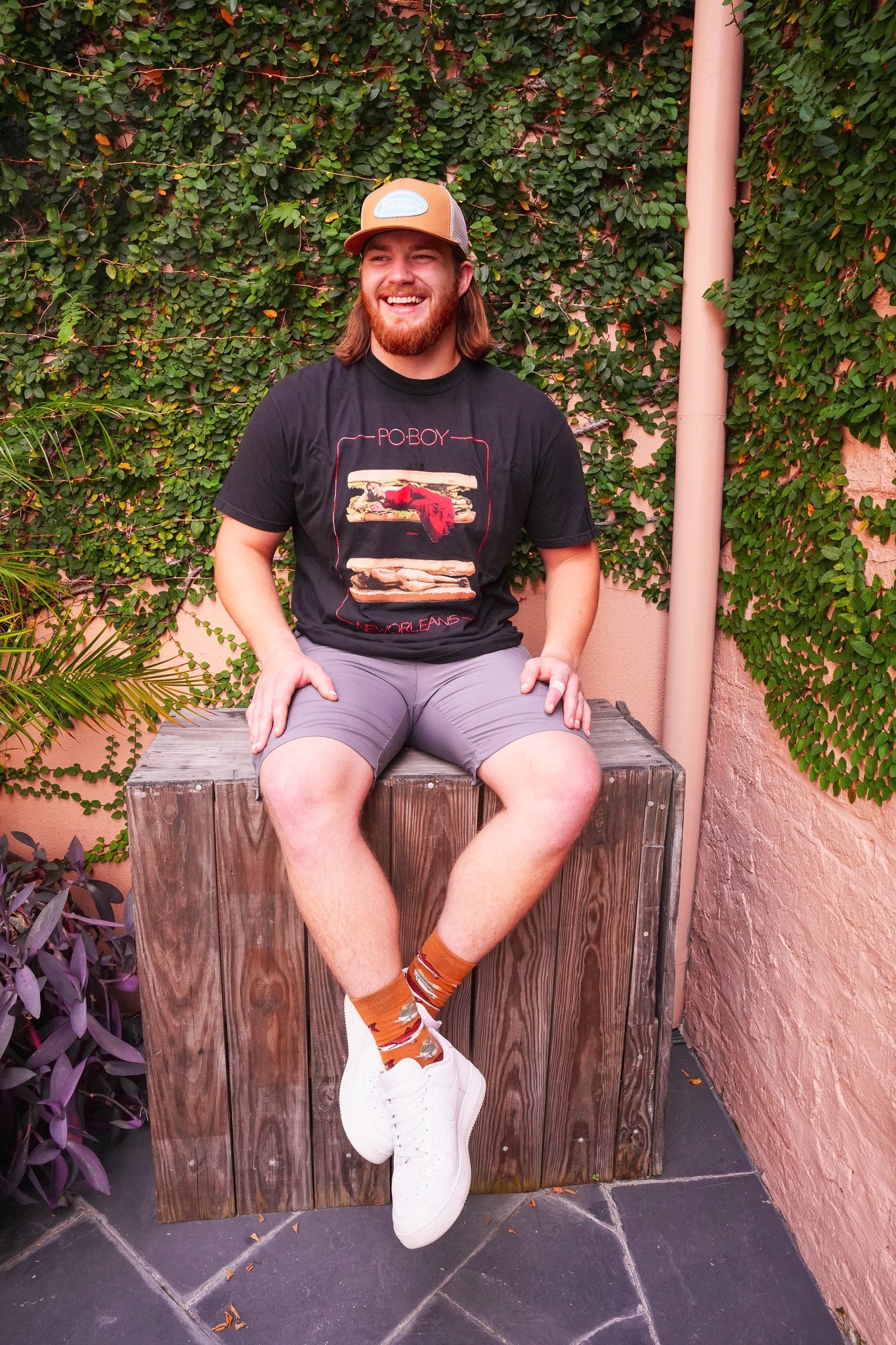
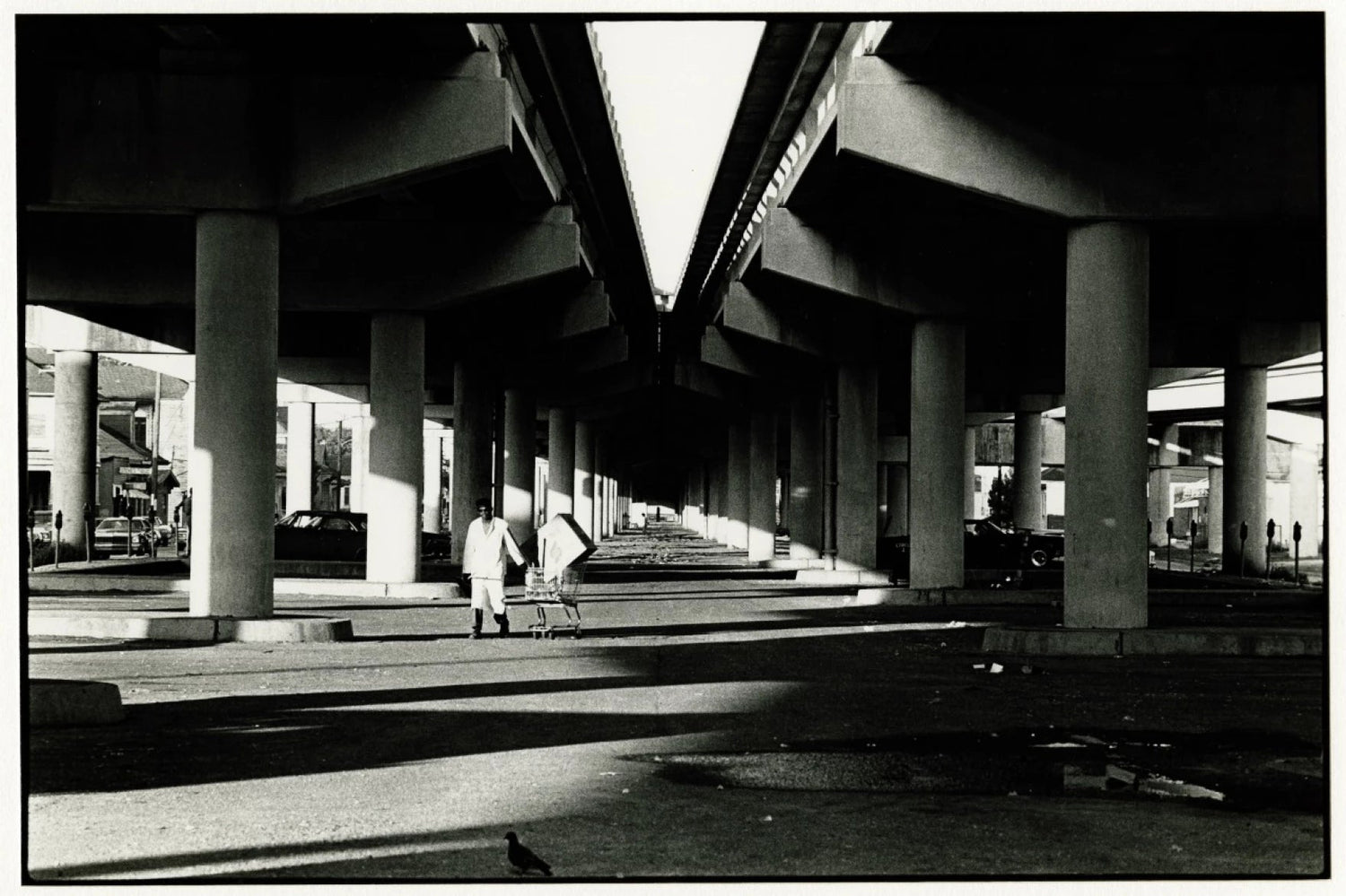
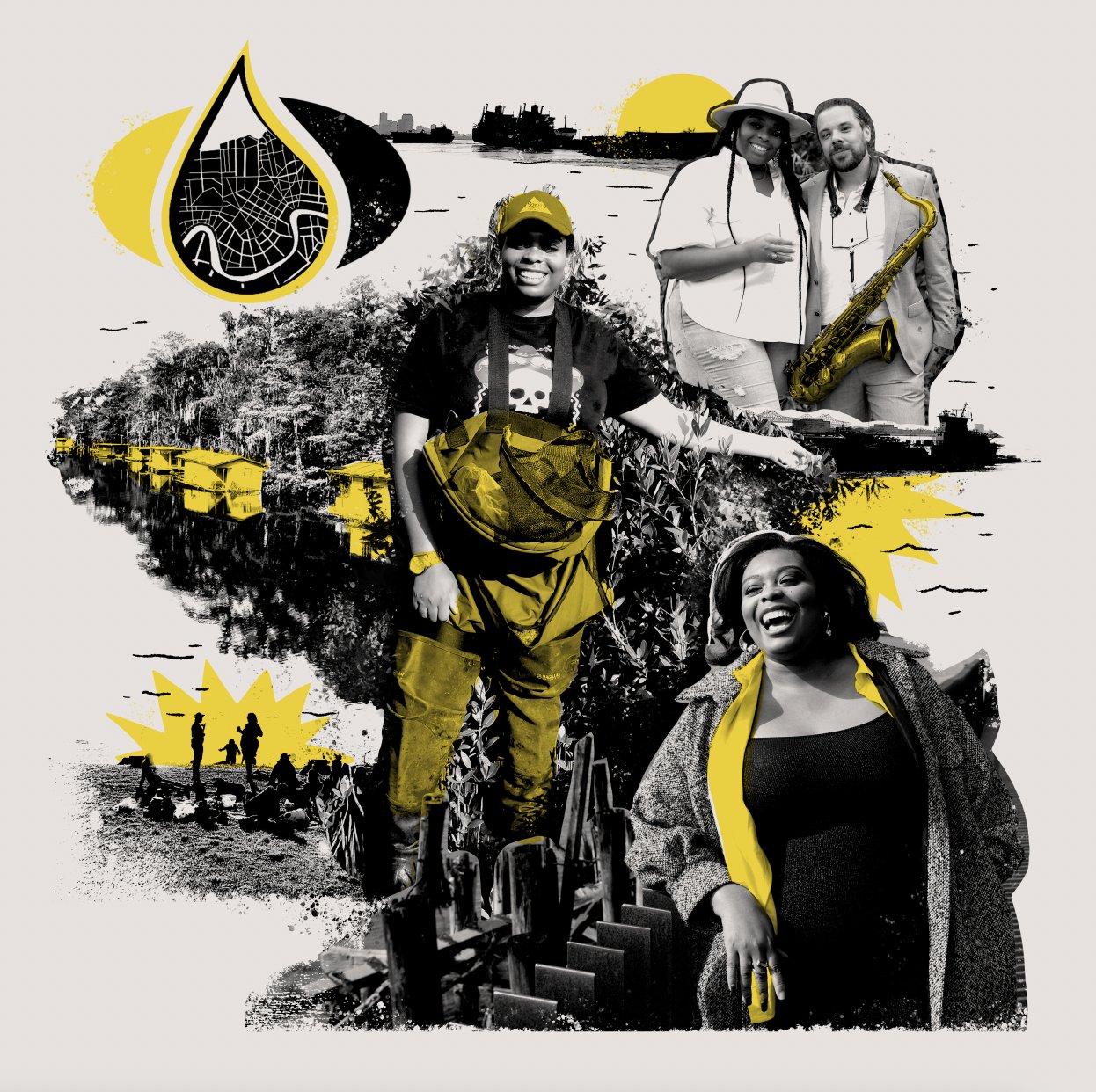
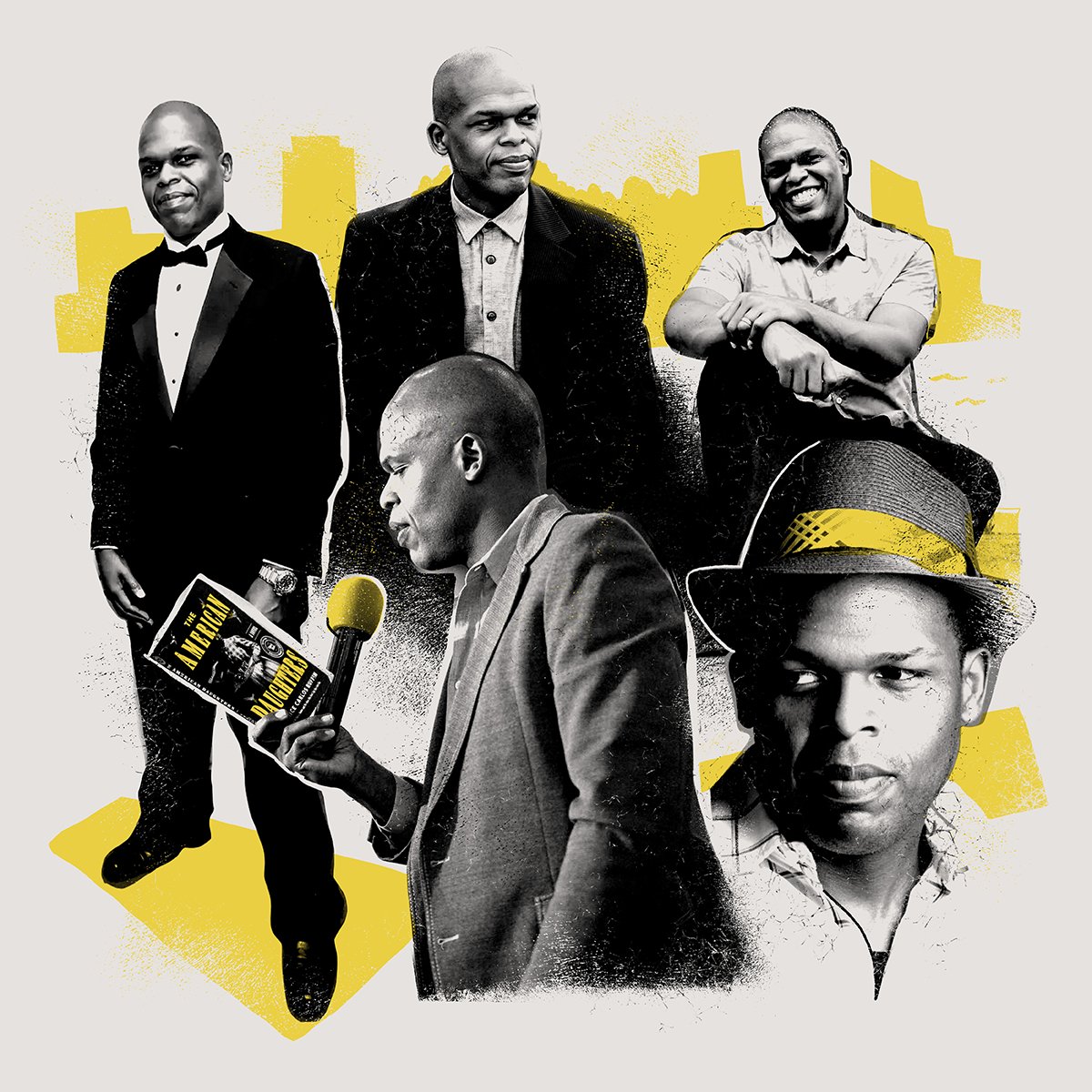
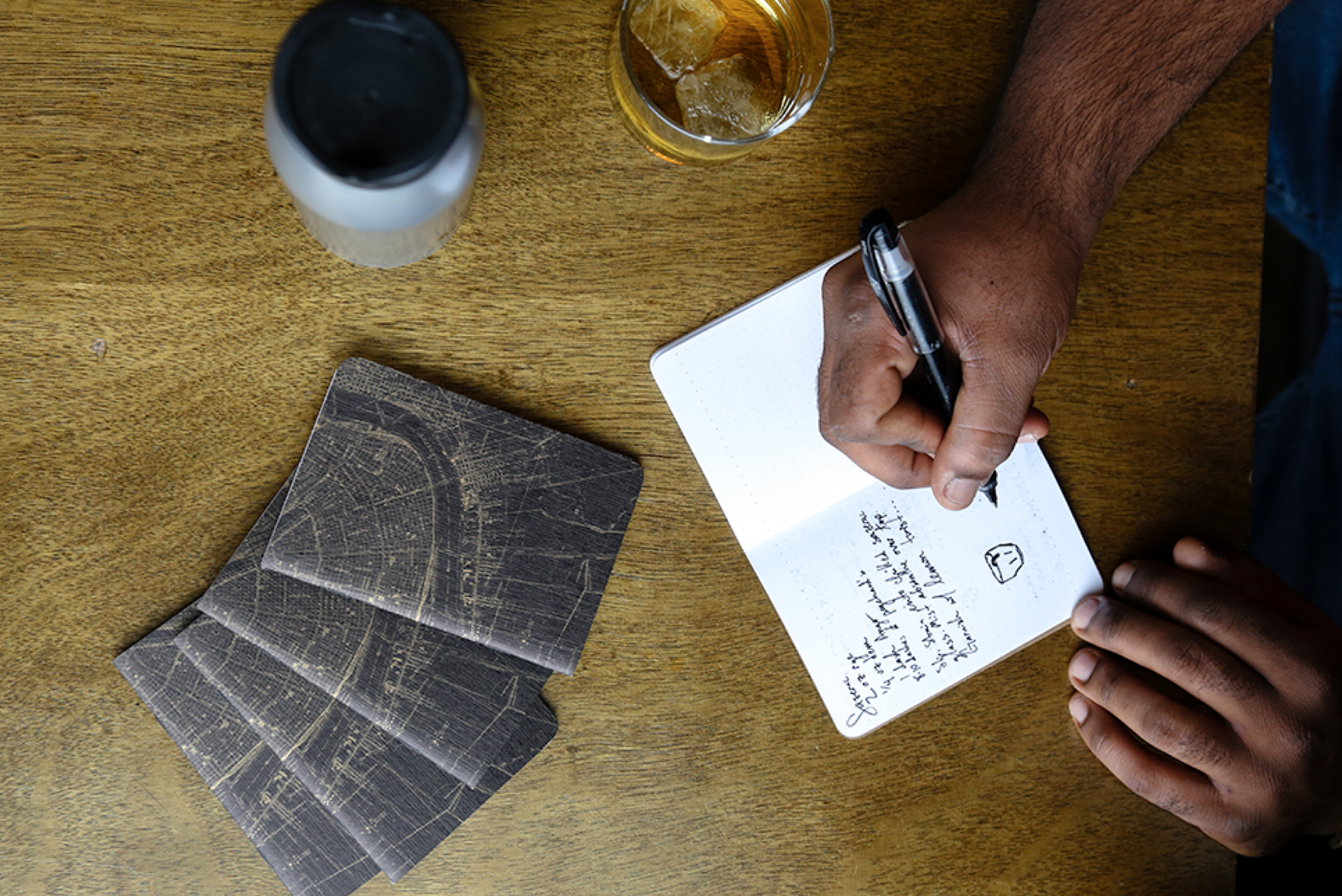
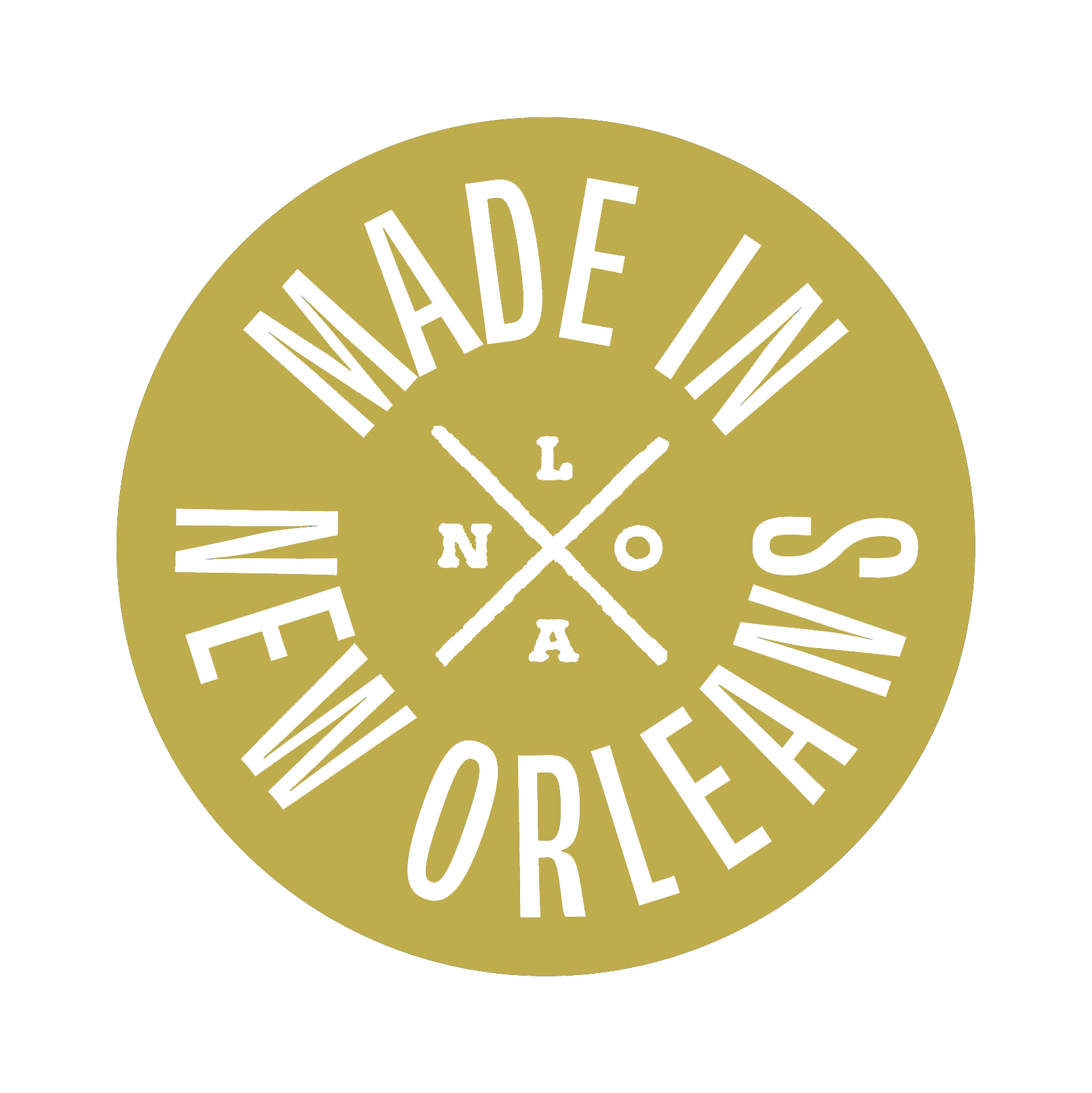

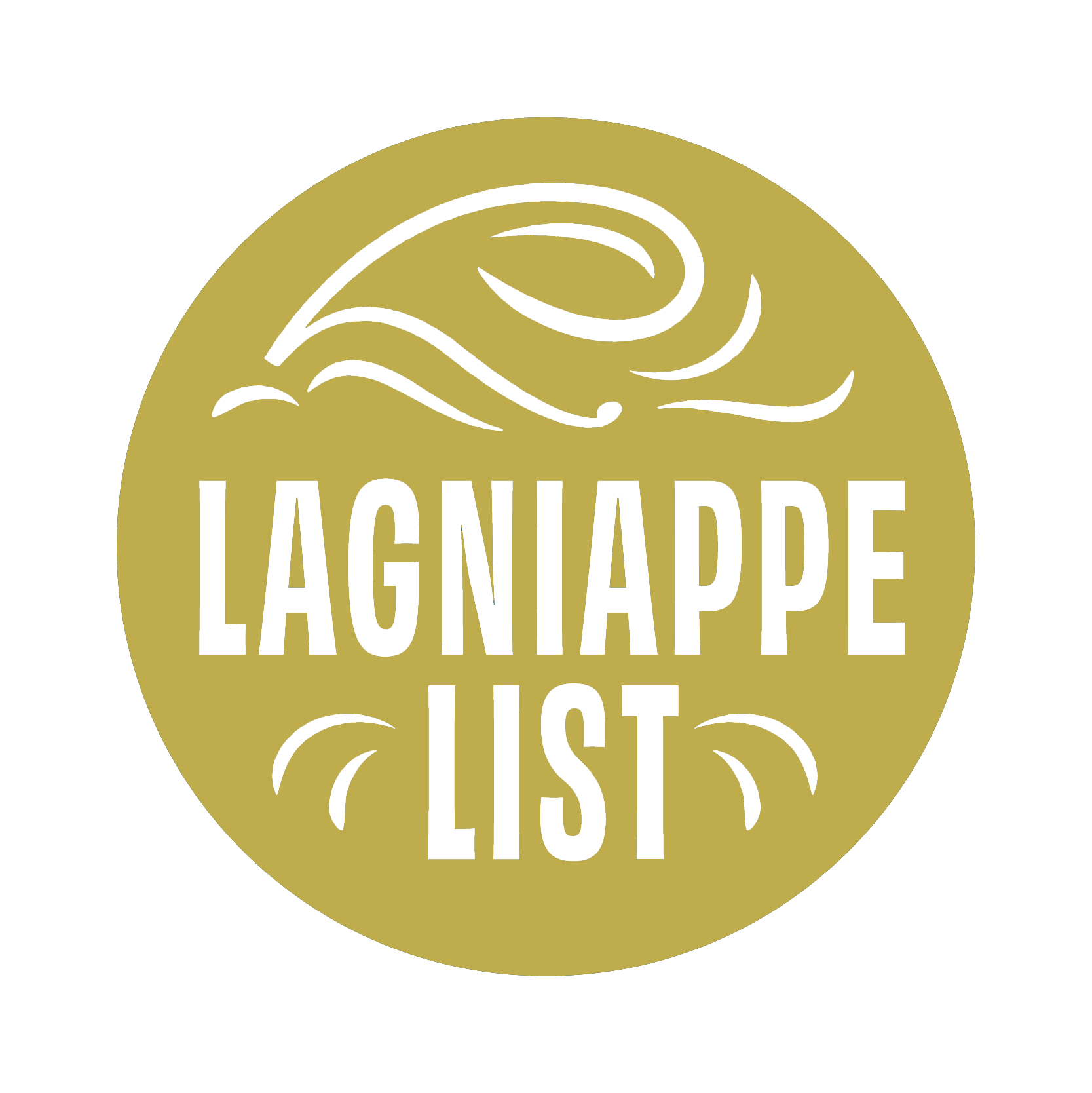

Leave a comment
All comments are moderated before being published.
This site is protected by reCAPTCHA and the Google Privacy Policy and Terms of Service apply.